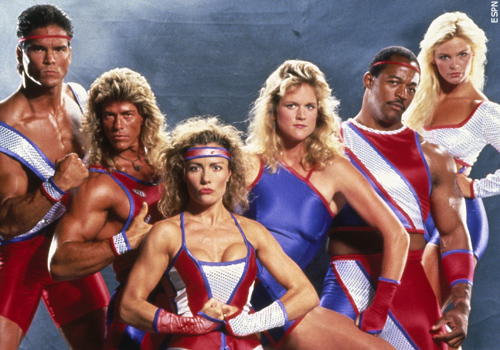You hear it from all the VCs…you even hear it from seasoned entrepreneurs…but I always thought it sounded like BS. “Team is everything” they say, “We’d rather invest in an A-Team with a B-Idea than a B-Team with an A-Plus-Idea.” Yeah, yeah, whatever.
Yeah – not whatever.
I’ve made a ton of mistakes over the past few years starting companies and I’ve been fortunate enough to have the opportunity to watch countless other start-ups avoid and make their own mistakes. When it comes to young start-up teams, here are my top lessons learned:
Don’t Underestimate the Importance and Value of Team.
Tremendous value can literally be pulled out of thin air when smart people unite around a common passion. I’ve seen it happen many times and it’s truly magical to watch great teams form and create value for their customers. We started FounderSoup because we wanted to help our friends find the awesome co-founders they needed to get their start-ups off the ground.
We could have each tried to play match-maker within our own personal networks. Instead, we pooled our resources, brought our separate networks together, and were able to throw successful pitch events from Day One. The whole is greater than the sum of its parts.
Play to your Strengths.
In the very early days, before you’ve proven that your customers will lay down money for your product (aka traction), focus on pitching your team more than your technology, products, market, or anything else. Whether you’re talking to potential partners, seed investors, or even your early adopters, you want to convince people to invest in you. Savvy partners and investors know that rockstars figure out how to solve market and technology challenges.
It’s easy to say no to an idea; it’s way harder to say no to awesome people who are passionate about solving a problem. So play to your strengths and pitch yourself and your past successes more than your ever-changing ideas.
Learn to Communicate and Work with Anyone.
I’ve found that people vary wildly in their sensitivity to other people’s needs and thoughts. This isn’t a strength of mine, but I’ve learned a few simple things that have improved relationships, saved friendships, and ultimately made me more successful:
- Constantly put yourself in the other person’s shoes: We’re all human and it can be easy to forget that in the heat of the moment.
- Learn to listen well: This is the easiest way to understand what someone is feeling and thinking.
- Separate the people from the problem: If you can reframe a disagreement with someone into an opportunity to solve a problem together, you can both focus your energy on tackling the problem instead of one another. Both Getting to Yes and Difficult Conversations provide great frameworks for becoming a better communicator and learning to work with just about anyone.
You Are Not Alone.
Fostering an “Us versus Them” mentality can be incredibly powerful for uniting your team (whether “them” is the status quo or your competition). But if you take this mentality too far too early, then you run the risk of missing out on building an amazing team. Instead, seek out amazing people who are passionate about the same things you are and find small ways to bind your fates together.
Inevitably, someone (maybe your competitor) will have the epiphany and discover product-market fit. Learn from successes like PayPal, which was the merger of Confinity (Peter Thiel, Luke Nosek, Max Levchin) and X.com (Elon Musk). Instead of continuing to bleed one another dry in a heated competition, they joined forces and turned their attention to mutual enemies, like the Russian Mafia and eventually eBay, who would later acquire them for $1.5 billion. “Us versus Them” can be a powerful motivator just make sure you’ve picked the right “Us” first.
Start Building a Strong Network Now.
Jay de la Torre, FounderSoup Event Architect recently told me, “An entrepreneur in a vacuum is a wantrepreneur.” He’s completely right, and the more amazing people who know and trust you, the more likely you are to succeed with your venture.
Some people think that building a network is sleazy but I completely disagree. What’s sleazy about meeting new people and maintaining old relationships? Nothing. Personally, I find the act of helping someone discover or act on their passion really fulfilling and I find that most people are willing to help me out whenever they can. Sure, it can feel intimidating meeting someone new or asking an old friend for help, but just remember that that person might be able to help you make your dream a reality. It also helps to recognize that you’d help them if you knew they needed something. So be sure to get out there and connect with lots of different kinds of people.
If you’re part of the Stanford community and interested in meeting talented student entrepreneurs, then we want you to join the FounderSoup Network. It doesn’t matter if you’re an engineer, in business, a design guru, or are studying medicine, urban studies, or a hard science – if you’re passionate about entrepreneurship, then you’re welcome to apply to join the FounderSoup Network and pitch at our next event here.
Bottom Line:Team is everything because people are everything. Great companies start when amazing people unite around a shared purpose.


